Filter by
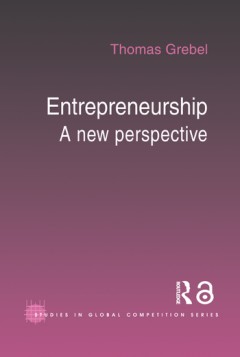
Entrepreneurship : a new perspective
The entrepreneur has been neglected over the years in formal economic theorizing. Previously there has been only eclectic theories such as human capital theory and network dynamics which discuss certain perspectives of entrepreneurial behaviour. This insightful book closes this gap in entrepreneurship literature. Inspired by modern physics, author Thomas Grebel brings together an evolutionary m…
- Edition
- -
- ISBN/ISSN
- 9780203478745
- Collation
- xx, 203p. : ill.
- Series Title
- -
- Call Number
- 338.04 GRE e
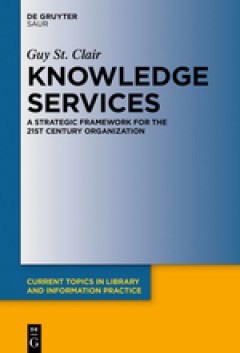
Knowledge Library: A Strategic Framework for the 21st Century Organization
Knowledge services converges information management, knowledge management (KM), and strategic learning into a single enterprise-wide discipline for the benefit of the business or organization in which it is practiced. With the success of knowledge services as a management methodology, the practice has become an acknowledged framework for strategic knowledge management applicable to all business…
- Edition
- -
- ISBN/ISSN
- 5978311046552
- Collation
- 328p.: ill.
- Series Title
- -
- Call Number
- 026 ST k

Enter culture, exit arts? : the transformation of cultural hierarchies in Eur…
Key debates of contemporary cultural sociology – the rise of the ‘cultural omnivore’, the fate of classical ‘highbrow’ culture, the popularization, commercialization and globalization of culture – deal with temporal changes. Yet, systematic research about these processes is scarce due to the lack of suitable longitudinal data. This book explores these questions through the lens of a…
- Edition
- -
- ISBN/ISSN
- 9781138740556
- Collation
- xvi, 255p. : ill.
- Series Title
- -
- Call Number
- 306.094 ENT e

Faith and secularisation in religious colleges and universities
This book is a detailed study of higher education institutions affiliated to particular religions. It considers the debates surrounding academic freedom, institutional governance, educational policy, mission and identity together with institutions’ relations with the state and their wider communities. A wide range of institutions are examined, including: Christian, Islamic and Jewish universi…
- Edition
- -
- ISBN/ISSN
- 9780203007440
- Collation
- xiv, 178p. : ill.
- Series Title
- -
- Call Number
- 378.07 ART f
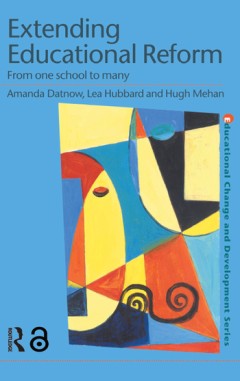
Extending educational reform : from one school to many
In an effort to improve student achievement, thousands of US schools have adopted school reform models devised externally by universities and other organizations. Such models have been successful in improving individual schools or groups of schools, but what happens when educational reform attempts to extend from one school to many? Through qualitative data from several studies, this book explo…
- Edition
- -
- ISBN/ISSN
- 9780203993965
- Collation
- xi, 179p. : ill.
- Series Title
- -
- Call Number
- 371.200973 DAT e

Formula funding of public services
The use of formulae has become widespread in recent years across most developed countries. In the UK, a conservative estimate is that annually £150 billion of public service expenditure is distributed using formulae, in services such as health care, local government, social security and higher education. This book offers a comprehensive introduction to the theory and practice underlying the us…
- Edition
- -
- ISBN/ISSN
- 9780203013021
- Collation
- xv, 176p. : ill.
- Series Title
- -
- Call Number
- 363.60681 SMI f
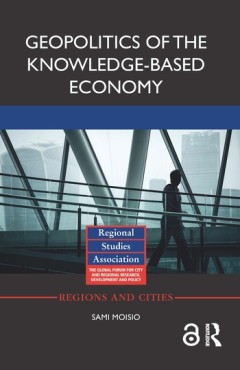
Geopolitics of the knowledge-based society
We live in the era of the knowledge-based economy, and this has major implications for the ways in which states, cities and even supranational political units are spatially planned, governed and developed. In this book, Sami Moisio delves deeply into the links between the knowledge-based economy and geopolitics, examining a wide range of themes, including city geopolitics and the university as …
- Edition
- -
- ISBN/ISSN
- 9781138821996
- Collation
- xi, 182p. : ill.
- Series Title
- -
- Call Number
- 303.4833 MOI g
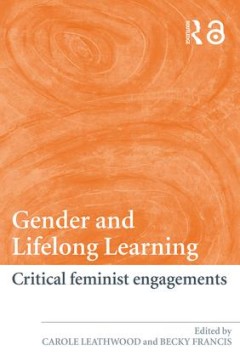
Gender and lifelong learning : critical feminist engagements
This insightful book is ideal for students, researchers and policy makers wanting a sound overview of the critical issues of gender in lifelong learning. Asking pertinent questions relating to discourses on policy, the authors offer the reader a rare view of lifelong learning from a gender-focused perspective, filling a gap in the literature and moving current debate on into new areas. Question…
- Edition
- -
- ISBN/ISSN
- 9780203969533
- Collation
- xiii, 214p. : ill.
- Series Title
- -
- Call Number
- 374.0082 GEN g

Institutional change in Southeast Asia
This book examines the institutional changes taking place in, and challenges facing, the region since 1997. It also describes various differences in the reform process between countries in the region. Sjöholm and Tongzon argue that the economies of southeast Asia need to reform their institutions if the previous rapid development is to continue. The institutional weaknesses have been addressed…
- Edition
- -
- ISBN/ISSN
- 9780203694633
- Collation
- xv, 206p. : ill.
- Series Title
- -
- Call Number
- 330.959 INS

Oral literature in the digital age: archiving orality and connecting with com…
- Edition
- -
- ISBN/ISSN
- 9781909254336
- Collation
- 190 p.; 23 cm.
- Series Title
- -
- Call Number
- 398.2 ORA o
- Edition
- -
- ISBN/ISSN
- 9781909254336
- Collation
- 190 p.; 23 cm.
- Series Title
- -
- Call Number
- 398.2 ORA o
 Computer Science, Information & General Works
Computer Science, Information & General Works  Philosophy & Psychology
Philosophy & Psychology  Religion
Religion  Social Sciences
Social Sciences  Language
Language  Pure Science
Pure Science  Applied Sciences
Applied Sciences  Art & Recreation
Art & Recreation  Literature
Literature  History & Geography
History & Geography